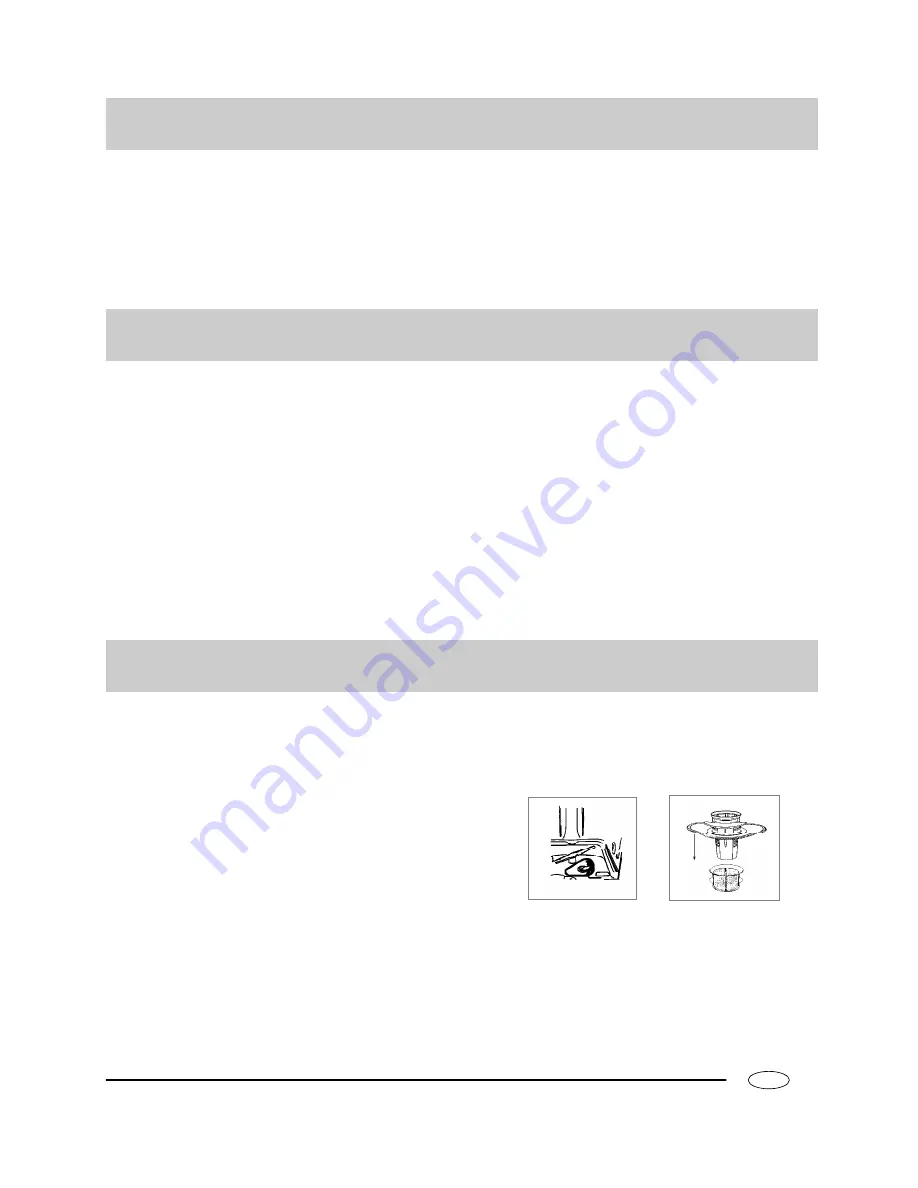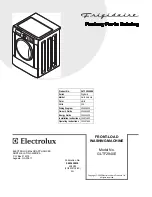
Energy saving tips
--It is important to try and run the dishwasher when it is fully
loaded in order to save on energy. In order to prevent odours
from forming and food from caking onto the dishes, you can run
the soak cycle.
-Choose the right wash cycle: The choice of cycle depends on
the type of dishware, cookware and utensils being washed and
how dirty they are.
-Use the right amount of detergent: If you use too much detergent,
the result will not be cleaner dishes, but a greater negative im-
pact on the environment.
-There is no advantage in rinsing dishes, cookware and utensils
before placing them in the dishwasher.
How to keep your dishwasher in shape
After every wash
After every wash, leave the door slightly ajar so that moisture and
odours are not trapped inside.
Remove the plug
Before cleaning or performing maintenance, always switch of the
electricity supply and remove the plug from the socket.
No solvents or abrasive cleaning products
To clean the exterior and rubber parts of the dishwasher, do not
use solvents or abrasive cleaning products. Use only a cloth and
warm soapy water.
To remove spots or stains from the surface of the interior, use a
cloth dampened with water and a little white vinegar, or a cleaning
product made specifically for dishwashers.
When you go on holiday
When you go on holiday, it is recommended that you run a wash
cycle with the dishwasher empty and then remove the plug from
the socket, turn off the water supply and leave the door of the
appliance slightly ajar. This will help the seals last longer and
prevent odours from forming within the appliance.
Moving the appliance
If the appliance must be moved, try to keep it in a vertical position.
If absolutely necessary, it can be positioned on its back.
Seals
One of the factors that cause odours to form in the dishwasher
is food that remains trapped in the seals. Periodic cleaning with
a damp sponge will prevent this from occurring.
Cleaning and special maintenance
A
B
Filter assembly
For best performance and results, the filter assembly must be
cleaned.
The filter efficiently removes food particles from the wash water,
allowing it to be recirculated during the cycle. For this reason, it
is a good idea to remove the larger food particles trapped in the
filter after each wash cycle by rinsing the semi-circular filter “A”
and cup under running water. To remove the filter assembly,
pull on the cup handle in an upward direction. The entire filter
assembly (made up of the semicircular filter “A” and the fine
filter “B” ) should be cleaned at least once a month. To clean the
filter and the fine filter, use a cleaning brush. Then, reassemble
the filter parts as shown in the figures below and replace the
entire assembly, and press down.
The dishwasher must never be used without the filters. Improper
replacement of the filters may reduce performance of the appli-
ance and damage dishes and utensils.
Cleaning the spray arms
It may happen that food particles block the holes in the sprayer
arms (see “Close up view [interior]” , letters D-F ). Check the
sprayer arms periodically and clean them when needed.
Cleaning the water inlet filter
Periodically clean the water inlet filter located on the outlet of the
water supply tap.
After turning off the water supply, unscrew the end of the water
supply hose, remove the filter and clean it carefully under run-
ning water. Then, return the filter to its place and tighten the wa-
ter supply hose back into position.
.8.
GB






























